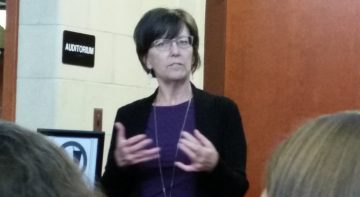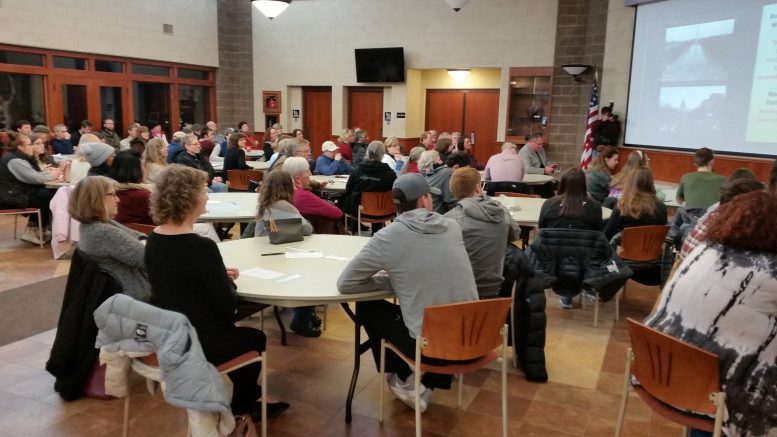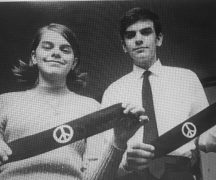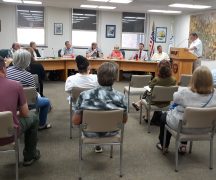By JAN LARSON McLAUGHLIN
BG Independent News
As high school students across the nation are testing their rights as citizen activists, it turns out many area students know little about their First Amendment rights.
Nancy Patterson, a professor of education in the College of Education and Human Development at Bowling Green State University, has been studying student awareness of the freedoms of religion, speech, the press, to assemble, and to petition the government.
Her study, titled “But I Wanna Say What I Wanna Say,” examined student and teacher perceptions of their First Amendment Rights. Seven of 12 schools accepted Patterson’s request to interview students and staff. So far, she has talked with 125 students and nine teachers.
The study came at an interesting time – with Parkland, Florida, students flexing their First Amendment muscles and students across the country following suit.
“What better way to honor Martin Luther King,” on the 50th anniversary of his assassination, Patterson said.
The study revealed a troubling lack of time spent teaching students about being engaged citizens, she said.
“I’m worried about the time in the curriculum for citizen skills,” Patterson said.
That deficiency is not unexpected since standardized testing no longer allows teachers to address topics that aren’t preparing students for specific testing areas. Civil discourse is not on that list.
“Not tested, not taught,” Patterson said. “We don’t have room in the curriculum.”

Nancy Patterson presents her study.
While students may feel limitless freedom on their electronic devices, many know little about their full First Amendment rights beyond social media. But many of them have been affected by those issues – when taking a knee during the national anthem, or when voicing opinions on social media.
“Students are really very interested in this topic,” Patterson said, listing off U.S. Supreme Court rulings on student speech about political issues, sexual innuendo, and school newspapers.
Students in advanced placement classes tended to be much more aware of their rights. Others, at least, were interested.
“I saw lot of light bulbs,” Patterson said.
“Very many of them didn’t know they had First Amendment rights,” she said. One student commented that since he wasn’t 18 yet, he didn’t think those rights applied to him.
Patterson, who presented her study at the Bowling Green City School’s Performing Arts Center last week, said she was surprised by the students’ lack of knowledge of their rights. But she was pleased with their ability to talk civilly with others who had different opinions.
“The students gave me a lot of hope,” she said after her presentation. “I was very encouraged by their civility. They are not well informed enough, but they support each other and are concerned about each other.”
They realize that rights – even those guaranteed in the U.S. Constitution – have limits.
“The right not to be offended is not a First Amendment right,” Patterson said. “It’s very likely my freedoms are going to bump up against your freedoms” at some point.
Students want to discuss controversial topics in the classroom, Patterson found during her interviews. However, many students self-censor their comments, or feel they are not truly heard. While they like to discuss difficult topics, many reported being uncomfortable if the discussions go beyond civil exchanges.
Patterson also reported that students are aware that their teachers are crunched for time to cover topics unsanctioned by testing. They voiced concerns about teachers not having the right to talk about their beliefs in the classroom.
Participants in the First Amendment discussion suggested that more debate programs and school newspapers could prepare students for lives of engaged citizenship. The students at Parkland reportedly had strong debate and theater programs, which enabled them to more easily become citizen activists when their school faced tragedy.
“They were educated in school,” Patterson said with a smile.



